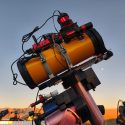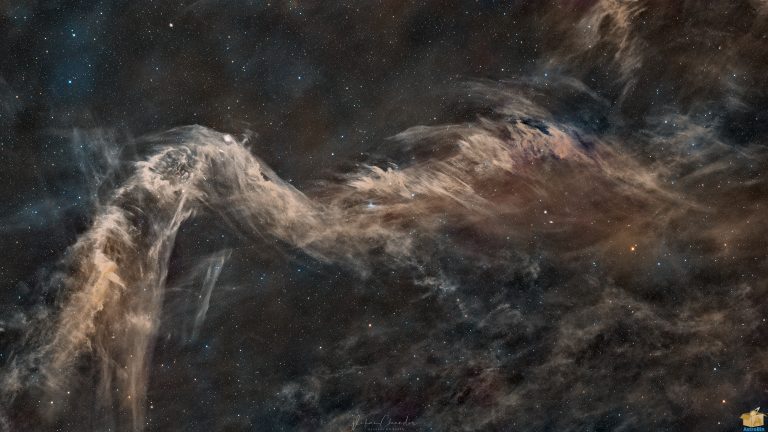Vikas Chander Astrophotography
The Southern Serpent
Mandell Wilson 9
Telescope : Takahashi E160ed
Camera : ASI ZWO 6200mm Pro
Mount : Software Bisque Paramount MX+
Focal length : 528mm
Fov : 234 x 156 arcmins
Image Scale : 1.47 arcsec/pixel
Observatory : Deep Sky Chile
Filters: tbd
R 186x5m G 185x5m B 185x5m
Integration: 46h20
RA: 17h 25m 14s
Dec : -78° 49′ 55″

The combined light of stars along the Milky Way are reflected by cosmic dust clouds that soar 300 light-years or so above the plane of our galaxy. Known to some as integrated flux nebulae and commonly found at high galactic latitudes, the dusty galactic cirrus clouds are faint. But they can be traced over large regions of the sky toward the North and South Galactic poles. Along with the reflection of starlight, studies indicate the dust clouds produce a faint reddish luminescence as interstellar dust grains convert invisible ultraviolet radiation to visible red light. Also capturing nearby Milky Way stars and distant background galaxies, this deep, wide-field image explores a complex of faint galactic cirrus known as Mandel Wilson 9. It spans over seven degrees across planet Earth's skies toward the far southern constellation Apus. – NASA
© Vikas Chander All rights reserved Copyrights

